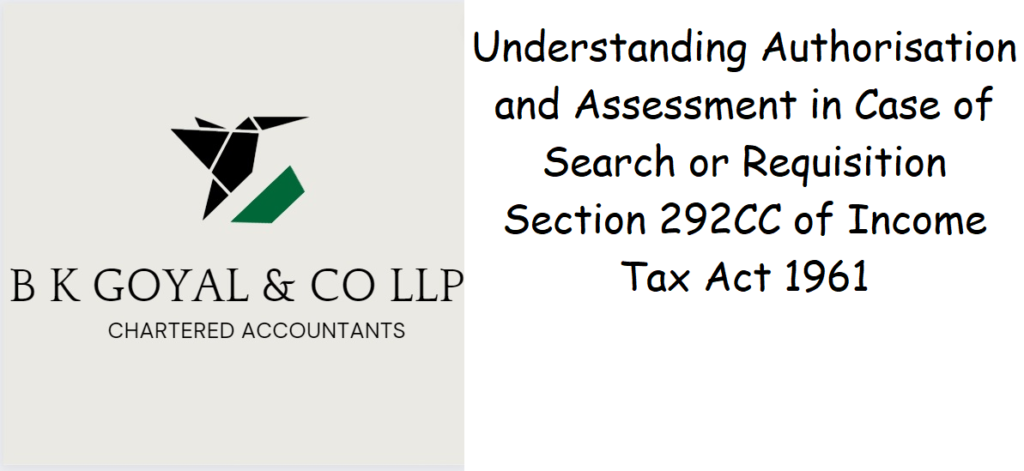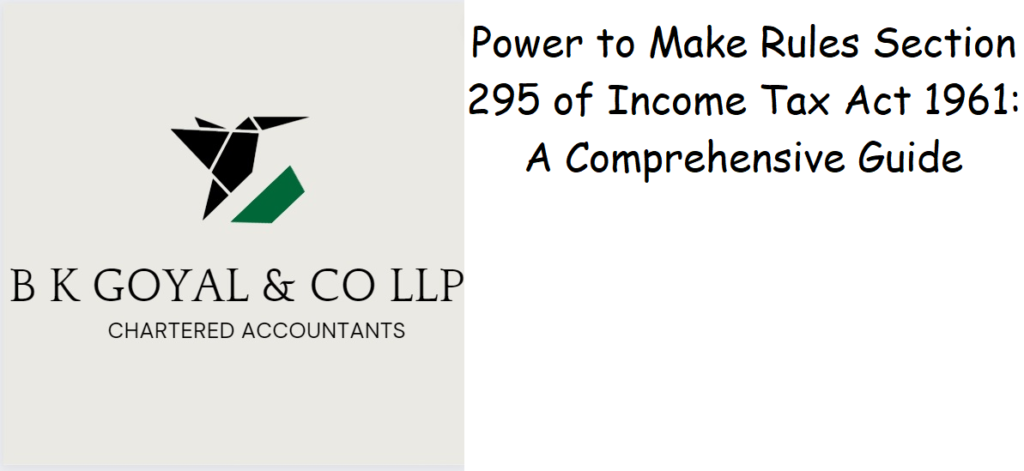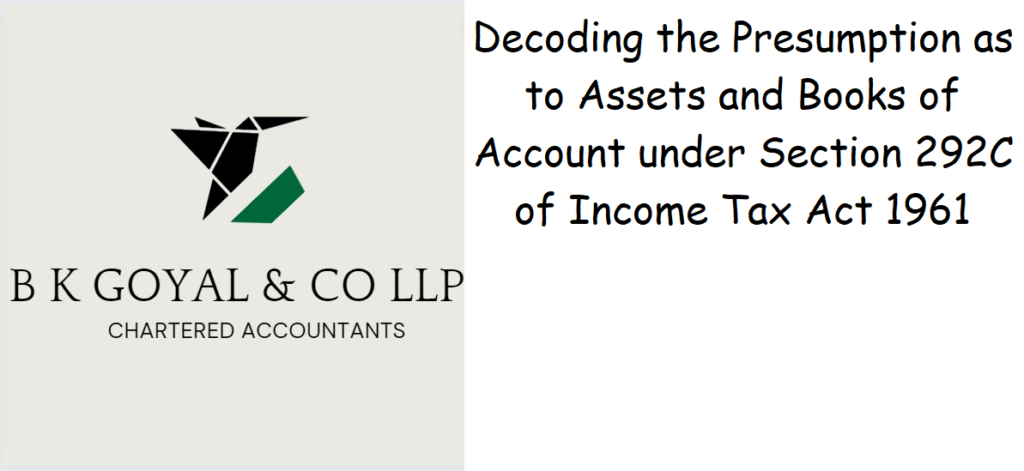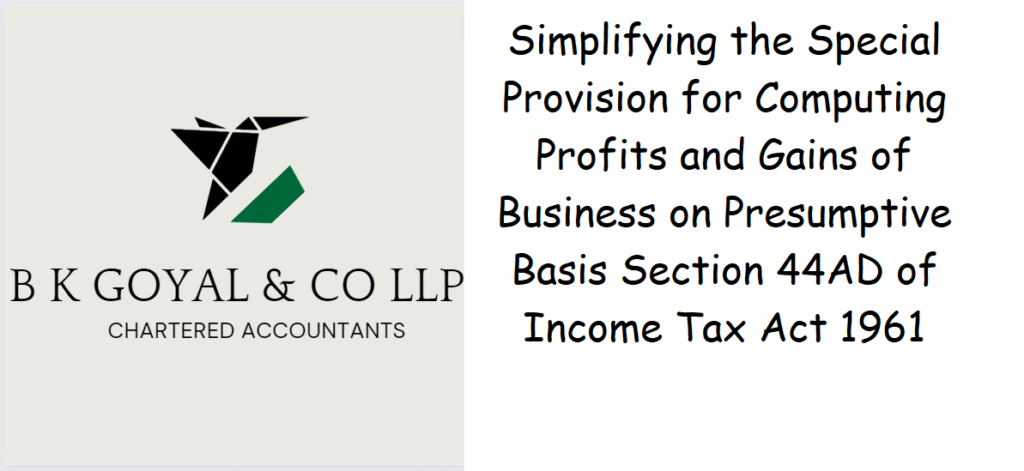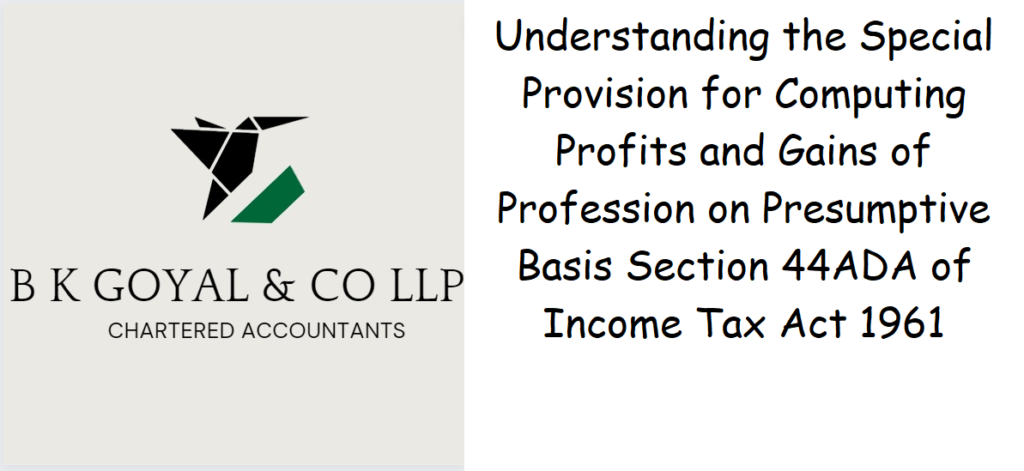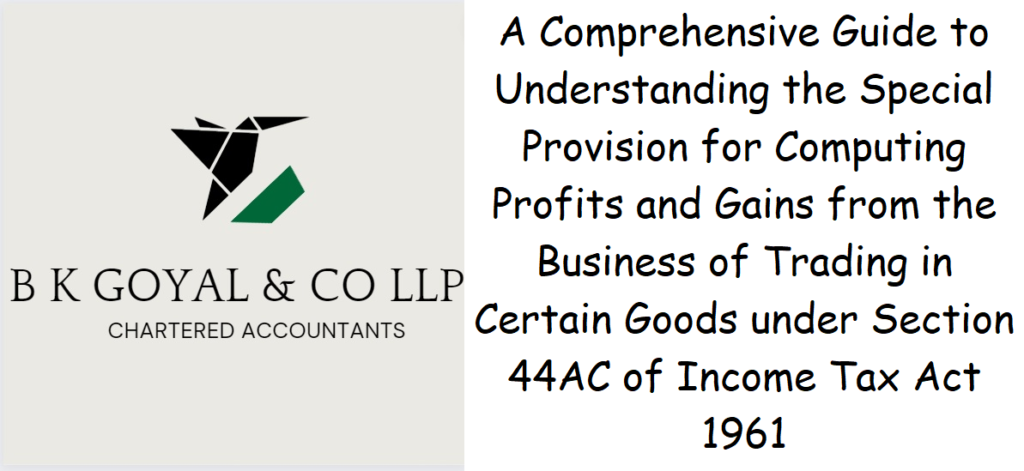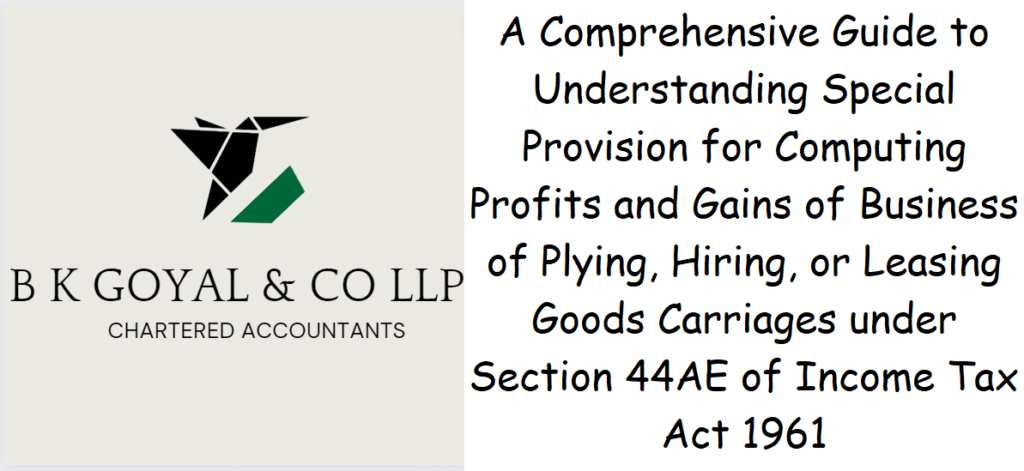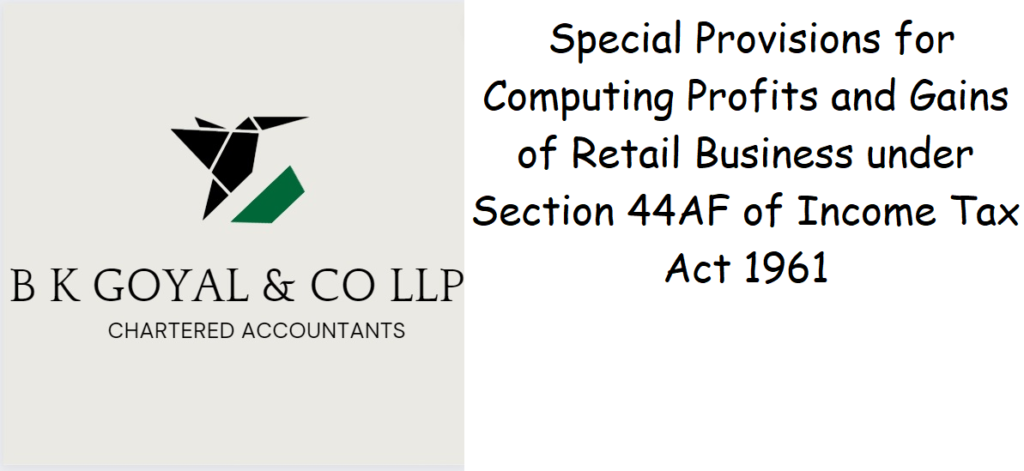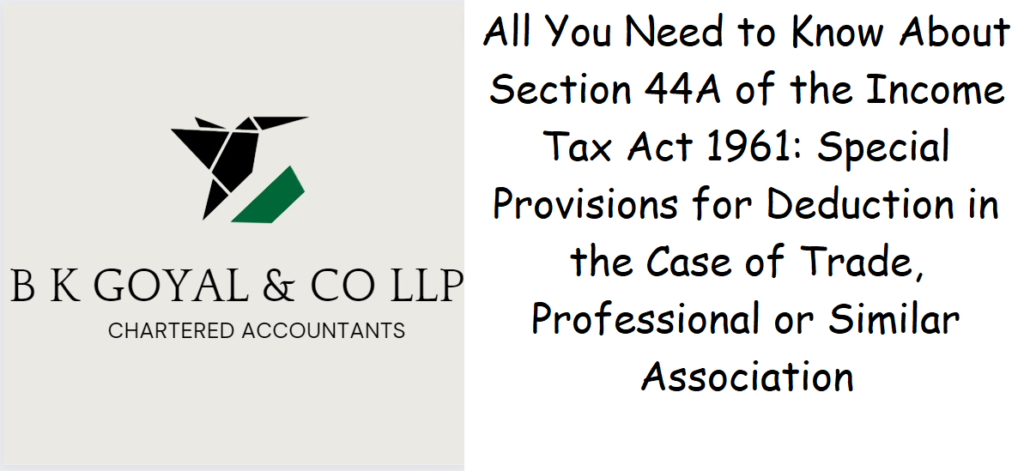Understanding Authorisation and Assessment in Case of Search or Requisition Section 292CC of Income Tax Act 1961
Introduction Are you looking to understand about Understanding Authorisation and Assessment in Case of Search or Requisition Section 292CC of Income Tax Act 1961? This detailed article will tell you all about Understanding Authorisation and Assessment in Case of Search or Requisition Section 292CC of Income Tax Act 1961. Hi, my name is Shruti Goyal, I have been working in the field of Income Tax since 2011. I have a vast experience of filing income tax returns, accounting, tax advisory, tax consultancy, income tax provisions and tax planning. B K Goyal & Co LLP is a CA Firm in India practicing in the field of taxation, company compliance, company incorporations, auditing, tax advisory, planning, business advisory, income tax return filings and many more. As a taxpayer, you are obligated to comply with the laws and regulations set forth by the Income Tax Department of India. In certain cases, the department may conduct a search or requisition of your property to investigate tax evasion or non-compliance. This can be a daunting experience, but it is important to understand your rights and obligations during this process. One of the key provisions related to this process is Section 292CC of the Income Tax Act 1961, which deals with authorisation and assessment in case of search or requisition. In this blog post, we will explore this provision in detail and discuss its implications for taxpayers. Understanding Authorisation and Assessment in Case of Search or Requisition Section 292CC of Income Tax Act 1961 Section 292CC of the Income Tax Act 1961 deals with the process of authorisation and assessment in case of search or requisition. Let’s break down the various aspects of this provision: Authorization: Under this provision, the Assessing Officer (AO) is authorized to proceed with a search or requisition if he has reason to believe that any person has undisclosed income, which is likely to be concealed. However, the AO must first obtain written authorization from the Director General or Director of Income Tax, who is senior in rank to him. This authorization must be given within 15 days from the date of receipt of the proposal from the AO. Assessment: After the search or requisition is conducted, the AO is required to assess the total income of the taxpayer for the relevant assessment year. This assessment must be made in accordance with the provisions of the Income Tax Act and the rules made thereunder. Notice of Assessment: Once the assessment is completed, the AO is required to issue a notice to the taxpayer specifying the total income and the tax payable thereon. The taxpayer can then file his objections, if any, to the assessment within 30 days from the date of receipt of the notice. Penalty: If the AO finds that the taxpayer has concealed his income or furnished inaccurate particulars of income, he may impose a penalty of up to three times the amount of tax sought to be evaded. Now that we understand the key aspects of Section 292CC, let’s address some common questions that taxpayers may have. FAQs Q: Can the AO conduct a search or requisition without obtaining written authorization from the Director General or Director of Income Tax? A: No, the AO is required to obtain written authorization from the Director General or Director of Income Tax before proceeding with a search or requisition. Q: Can the taxpayer refuse to cooperate during a search or requisition? A: No, the taxpayer is required to cooperate during a search or requisition and provide all necessary information and documents as requested by the AO. Q: What happens if the taxpayer fails to file objections to the assessment within 30 days? A: If the taxpayer fails to file objections to the assessment within 30 days, the assessment order will become final and binding. Q: Can the taxpayer challenge the assessment order? A: Yes, the taxpayer can challenge the assessment order before the Commissioner of Income Tax (Appeals) or the Income Tax Appellate Tribunal. Conclusion In conclusion, Section 292CC of the Income Tax Act 1961 lays down the process of authorisation and assessment in case of search or requisition. As a taxpayer it is important to understand your rights and obligations during this process, and to comply with the laws and regulations set forth by the Income Tax Department of India. In case of a search or requisition, the AO must obtain written authorization from the Director General or Director of Income Tax, and must assess the total income of the taxpayer for the relevant assessment year. The taxpayer can file objections to the assessment within 30 days from the date of receipt of the notice, and can challenge the assessment order before the Commissioner of Income Tax (Appeals) or the Income Tax Appellate Tribunal. It is important to note that a search or requisition is not an accusation of tax evasion or non-compliance, but is a means of gathering information and documents for assessment purposes. As a taxpayer, it is your responsibility to cooperate with the AO during this process, and to provide all necessary information and documents as requested. Failure to do so may result in penalties and legal action. In addition to understanding the provisions of Section 292CC, it is also important to maintain accurate and complete records of your income, expenses, and assets. This can help you avoid discrepancies and errors in your tax returns, and can also help you in case of a search or requisition. In conclusion, authorisation and assessment in case of search or requisition under Section 292CC of the Income Tax Act 1961 is a complex and important provision that affects taxpayers in India. It is important to understand your rights and obligations during this process, and to comply with the laws and regulations set forth by the Income Tax Department. By doing so, you can avoid penalties and legal action, and ensure that your tax affairs are in order. Section 292CC, of Income Tax Act, 1961 Section 292CC, of Income Tax Act,
